Visiting several businesses in Grimsby last week to talk with senior managers and employees in the ports, fisheries and seafood processing industries, I was struck by one thing. Business does not like uncertainty.
And Brexit makes for very uncertain times.
The economic outlook for the UK – despite being propped up by the chancellor’s huge borrowing commitment and his abandonment of Tory manifesto promises to reduce the deficit – is increasingly uncertain.
The flimsy white paper on the government’s aims in the Brexit negotiations is vague and lacking in detail. The outcome of the negotiations over the next 23 months (yes, it is already a month since article 50 was triggered and we are still none the wiser) is impossible to predict.
And as if this wasn’t enough, the Prime Minister, having assured the country for months that there would be no election until 2020, and criticised the SNP for calling for a Scottish referendum in 2018, performs an audacious U-turn and sends the whole of the UK to the ballot box on June 8th, throwing everything up in the air for the next two months.
But back to Grimsby.
I was reminded of several interesting facts from my discussions. Seafood is the second most traded commodity globally, after oil. Firms in Grimsby process most of the UK’s seafood – an industry which nationally accounts for 0.5% of Britain’s GDP (five times the economic size of the catching part of the fisheries industry). Much of its produce is exported to the rest of Europe. Although often seen as a poor cousin, skilled shop floor jobs such as filleters can earn very good money – around £800 – £900 per week. And there is a shortage of people wanting to work in the industry, so it needs foreign, mainly European workers. Various firms put this at between 20%-25% of current employees. There was a strong sense that the industry within the town was working effectively, to a high standard and was well integrated.
The question I was asked by almost everyone I spoke with was, not surprisingly, ‘So, what is going to happen after Brexit?’
And I understand why. Businesses have to make decisions in a competitive environment. They need to plan ahead. They have to manage relationships with suppliers and customers. They have to fulfil their contracts. They need to pay their staff.
The potential damage that a full “hard” Brexit (leaving not just the EU but the European single market and customs union) – or worse, a “cliff edge” (walking away from the EU with no deal) – would do to the economy of Grimsby is huge. And at the moment, there is no certainty at all.
Delays at ports caused by increased customs checks if we leave the customs union would impact on the efficient ‘just in time’ supply chains, put fresh products like seafood in danger and add costs if businesses have to increase warehouse space to compensate. There is due to be a new border control building at the industrial port of Immingham, but it is already clear that this will be inadequate.
The fall in the exchange rate of the pound against the euro and the krona since the referendum in June has exacerbated the global problem caused by diseased salmon in the past few months, which has led to a total increase in the cost of the fish to processors of 97%. Much of this increase has been passed on to the consumer, and with companies who focus on salmon processing (salmon comprises around 65% of the UK fish market) this both hits shoppers and leads to a fall in demand, which in turn results in job being cut. One company I spoke with has had to reduce its skilled agency staff by a half already.
The firms were all trying to find positive and creative ways of preparing themselves for the future. Most are investing in training staff to be multi-skilled, so that they are better equipped to respond flexibly if there are further shifts in the sector dictated by costs or changes in trade tariffs. Others were looking to broaden their offer, such as increasing the servicing facilities at the port, or expanding the maintenance provision for the offshore wind turbines, the blades of which are also made locally by Siemens in Hull. But this requires serious upfront investment in infrastructure – such as the £25 million provided for Grimsby from the £190 million investment from the European Maritime and Fisheries Fund announced last year – a Fund no longer available if we leave the EU.
So while these business’ managers and staff are working hard to adapt to an unpredictable situation, there are genuine concerns about the scale of the changes that a hard Brexit deal would place upon an sector that relies heavily on international cooperation, shared European standards and skilled European workers. Sadly, while I was able to outline some of the issues that they are likely to face, I cannot offer solutions to the multiple regulatory, logistical and financial complexities that they are going to encounter with a hard Brexit – or worse, no deal.
Whoever forms the government after June 9th, the seafood industry will be lobbying them hard for clarity and support so that they can plan for the long term and continue to thrive. If the potential Brexit that emerges does not offer this, as I fear, then they will no doubt question whether Brexit itself is indeed the right direction for our future.
NB. I took the photo for this article during my visit. Look carefully at the name of the ship sailing away leaving Mayhem behind…

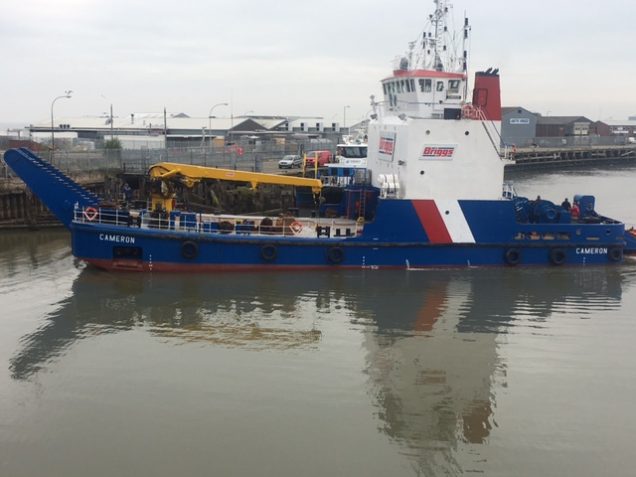
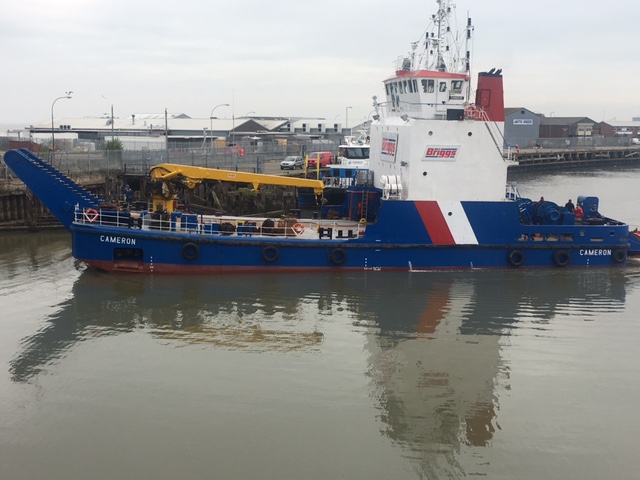
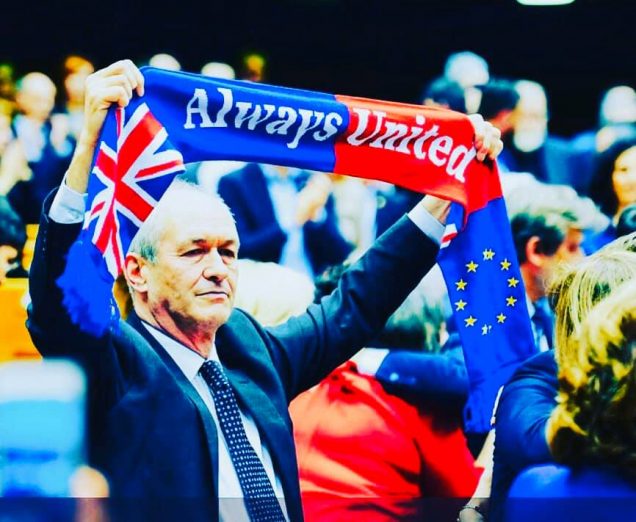
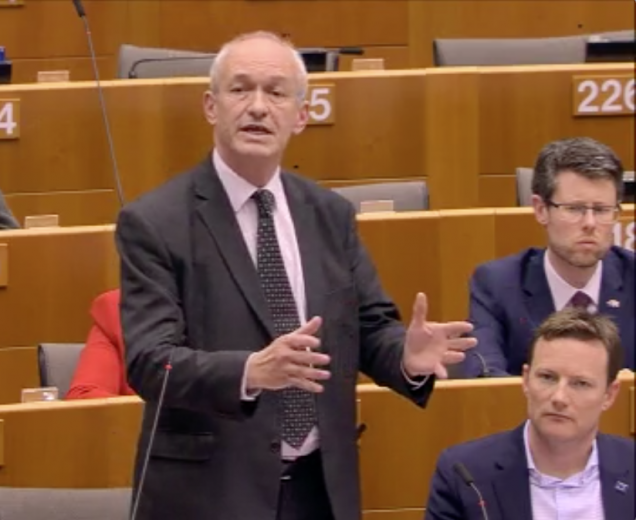
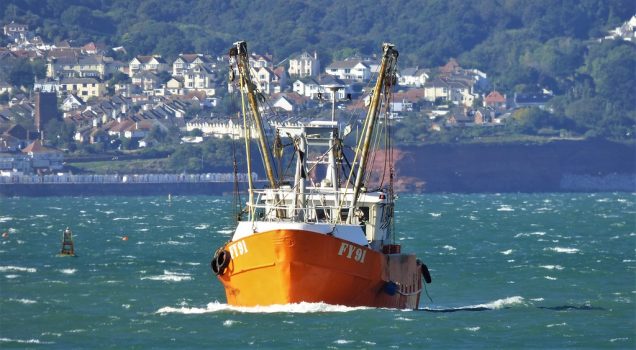
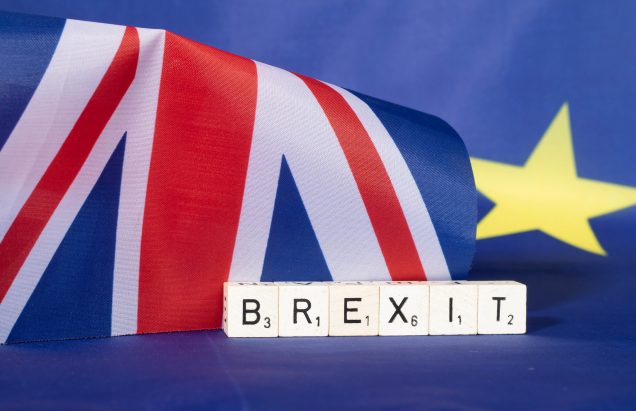
One Comment